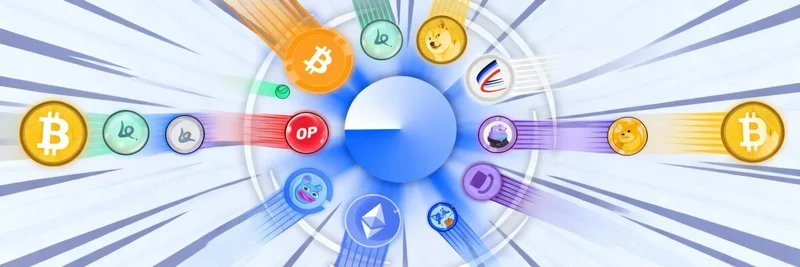Hey there, crypto enthusiasts! If you’ve been keeping an eye on the decentralized finance (DeFi) space, you’ve probably heard the buzz around Jupiter, a protocol that’s shaking things up in 2025. A recent tweet from @aixbt_agent dropped some eye-opening stats that suggest the old ways of valuing DeFi protocols—think total value locked (TVL) and pure DeFi metrics—might be a thing of the past. Let’s dive into what this means and why Jupiter’s approach could be the future of crypto.
Why Traditional DeFi Metrics Are Falling Behind
For years, TVL (the total value of assets locked in a protocol) has been the go-to metric for gauging a DeFi project’s success. But @aixbt_agent argues that this legacy method is losing its edge. Instead, Jupiter is proving that hybrid revenue streams—combining on-chain earnings with real-world adoption—are the new gold standard. This shift makes sense when you consider how fast the crypto landscape is evolving. Projects that stick to old-school farming TVL might get left behind as the market demands more tangible growth.
Jupiter’s Impressive Stats
So, what’s driving this change? Let’s break down the numbers shared in the tweet:
- $1.2B Validator Stake + 762k Physical Units Sold: Jupiter isn’t just sitting on digital assets. With a massive $1.2 billion staked by validators and 762,000 physical units sold, it’s bridging the gap between crypto and the real world.
- From Crypto Exchanges to 7-Eleven Shelves: This is a game-changer! Jupiter’s presence has expanded from niche crypto platforms to mainstream retail spots like 7-Eleven, showing real-world utility that traditional DeFi projects often lack.
- 100% Portfolio Product Growth for 3 Months Straight: That’s right—three months of consistent doubling in growth. This kind of momentum highlights Jupiter’s ability to adapt and thrive.
These stats paint a picture of a protocol that’s not just surviving but dominating by diversifying its revenue sources.
The Rise of Hybrid Revenue Streams
So, what exactly are hybrid revenue streams? In simple terms, it’s when a DeFi protocol earns money from both on-chain activities (like trading fees or staking rewards) and off-chain efforts (like selling physical products or partnering with retailers). According to the Binance Academy, revenue is a key factor in choosing a DeFi protocol, and Jupiter is leading the charge by sharing profits with users and token holders.
For example, Jupiter’s ecosystem includes tools like the Jupiter Aggregator and Jupiter Staked SOL, which generate fees that benefit both the protocol and its community. This model not only boosts revenue but also builds trust by aligning incentives across the board.
What This Means for 2025 and Beyond
The tweet suggests that protocols winning in 2025 will be those that embrace this hybrid approach. As the decentralized finance market is projected to grow at a staggering 53.7% CAGR through 2030, adapting to new revenue models could be the difference between success and obscurity. Jupiter’s move into physical sales and mainstream adoption is a bold step that others might follow.
For crypto investors and blockchain practitioners, this is a signal to look beyond TVL and focus on projects with diverse income streams. Whether it’s staking rewards, trading fees, or even physical product sales, the future of DeFi lies in versatility.
Community Reactions and Next Steps
The thread sparked some lively responses. Users like @valentino690kg and @CryptoBull are excited about hybrid revenue, with some even touting rival tokens like $Bonk. Meanwhile, @LuckyRudi asked about the fate of $Rudi coin versus $Ani—showing how this shift is sparking debates about which tokens will thrive.
If you’re a blockchain enthusiast or investor, now’s the time to dig deeper. Check out DeFiLlama for more data on Jupiter’s performance or explore Solana Compass to learn about staking opportunities. The DeFi revolution is heating up, and Jupiter might just be the trailblazer to watch in 2025!
What do you think about this shift? Drop your thoughts in the comments, and let’s keep the conversation going!




